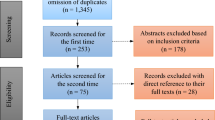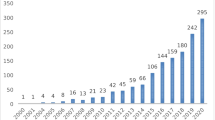Abstract
To date, the concept of English for Specific Purposes has brought about a great impact on English language learning across various disciplines, including those in science education. Hence, this review paper aimed to address current English language learning in the science disciplines through the practice of computer-assisted language learning to identify the use of learning technologies in science-based literacy. In the literature review, the researchers found that science-based literacy instruction shares many pedagogical aims with English language teaching in terms of reading, writing, listening and speaking, allowing it to be classified as English for Scientific Purposes (EScP). To answer the research questions, the researchers conducted the survey by extracting related articles and teaching examples from the Web of Science. In the search procedure, the researchers used the keywords science OR scientific AND technolog* OR comput* in ten selected journals of social science citation index. Only articles which are specified as journal articles rather than other document types were included. After compiling the corpora, the researchers compared the trends, methodologies and results of EScP instruction in science education. The implications of this study include the opportunities, advantages and challenges for EScP instruction in science education to further develop better educational approaches, adopt new technologies, as well as offer some directions for researchers to conduct future studies.






Similar content being viewed by others
References
Alayyar GM (2012) Developing technological pedagogical content knowledge in pre-service science teachers: support from blended learning. Austr J Educ Technol 28(8):1298–1316
Butler YG (2005) Content-based instruction in efl contexts: considerations for effective implementation. JALT J 27(2):227–242
Cargill M, O’Connor P, Li Y (2012) Educating Chinese scientists to write for international journals: addressing the divide between science and technology education and English language teaching. Engl Specif Purp 31(1):60–69
Chang P (2012) Using a stance corpus to learn about effective authorial stance-taking: a textlinguistic approach. ReCALL 24(2):209–236
Cheuk T (2012) Comparison of the three content standards: CCSS-ELA, CCSS-Mathematics, and NGSS
Chiu LL, Liu GZ (2013) Effects of printed, pocket electronic, and online dictionaries on high school students’ English vocabulary retention. Asia Pac Educ Res 22(4):619–634
Creese A (2005) Is this content-based language teaching? Linguist Educ 16:188–204
Donnelly D, McGarr O, O’Reilly J (2011) A framework for teachers’ integration of ICT into their classroom practice. Comput Educ 57(2):1469–1483
Golonka EM, Bowles AR, Frank VM, Richardson DL, Freynik S (2014) Technologies for foreign language learning: a review of technology types and their effectiveness. Comput Assist Lang Learn 27(1):70–105
Hamilton J, Woodward-Kron R (2010) Developing cultural awareness and intercultural communication through multimedia: a case study from medicine and the health sciences. System 38(4):560–568
Higgins TE, Spitulnik MW (2008) Supporting teachers’ use of technology in science instruction through professional development: a literature review. J Sci Educ Technol 17:511–521
Huhta M (2010) Language and communication for professional purposes: needs analysis methods in industry and business and their yield to stakeholders. Yliopistopaino, Espoo
Kennedy-Clark S (2011) Pre-service teachers’ perspectives on using scenario-based virtual worlds in science education. Comput Educ 57(4):2224–2235
Konttinen M (2012) Let’s talk business! A task-based material package of public speaking and small talk in the BELF context. M.A. Thesis of Graduate School of Department of Languages. Jyvaskyla University
Krajcik JS, Sutherland LM (2010) Supporting students in developing literacy in science. Science 328:456–459
Laborda JG (2011) Revising materials for teaching languages for specific purposes. 3L Southeast Asian J Engl Lang Stud 17(1):102–112
Lin L, Evans S (2012) Structural patterns in empirical research articles: a cross-disciplinary study. Engl Specif Purp 31(3):150–160
Liu GZ (2008) Innovating research topics in learning technology: where are the new blue oceans? Br J Educ Technol 39(4):738–747
Liu GZ (2011) The blended language learning course in Taiwan: issues & challenges of instructional design. In: Macalister J, Nation ISP (eds) Case studies in language curriculum design: concepts and approaches in action around the world. Routledge, New York, pp 82–100
Liu GZ, Chen ASW (2007) A taxonomy of internet-based technologies integrated in language curricula. Br J Educ Technol 38(5):934–938
Liu GZ, Liu ZH, Hwang GJ (2011) Developing multi-dimensional evaluation criteria for English learning websites with university students and professors. Comput Educ 56(1):65–79
Liu GZ, Wu NW, Chen YW (2013) Identifying emerging trends for implementing learning technology in special education: a state-of-the-art review of selected articles published in 2008–2012. Res Dev Disabil 34(10):3618–3628
Loncar M, Barrett NE, Liu GZ (2014) Towards the refinement of forum and asynchronous online discussion in educational contexts worldwide: trends and investigative approaches within a dominant research paradigm. Comput Educ 73:93–110
Meluso A, Zheng M, Spires HA, Lester J (2012) Enhancing 5th graders’ science content knowledge and self-efficacy through game-based learning. Comput Educ 59(2):497–504
Morgan B (2009) Fostering transformative practitioners for critical EAP: possibilities and challenges. J Engl Acad Purp 8(2):86–99
Ogata H, Miyata M, Bin H, Yano Y (2010) JAMIOLAS2: supporting Japanese mimetic words and onomatopoeia learning with wireless sensor networks for overseas students. Int J Mobile Learn Organ 4(4):333–345
Oswald FL, Plonsky L (2010) Meta-analysis in second language research: choices and challenges. Annu Rev Appl Linguist 30:85–110
Pearson PD, Moje EB, Greenleaf C (2010) Literacy and science: each in the service of the other. Science 328:459–463
Singer J, Marx RW, Krajcik JS, Chambers JC (2000) Constructing extended inquiry projects: curriculum materials for science education reform. Educ Psychol 35(3):165–178
Snow CE (2010) Academic language and the challenge of reading for learning about science. Science 328:450–452
Soler V (2011) Comparative and contrastive observations on scientific titles written in English and Spanish. Engl Specif Purp 30(2):124–137
Spence P, Liu GZ (2013) Engineering English and the high-tech industry: a case study of an English needs analysis of process integration engineers at a semiconductor manufacturing company in Taiwan. Engl Specif Purp 32(2):97–109
Stage EK, Asturias H, Cheuk T, Daro PA, Hampton SB (2013) Opportunities and challenges in next generation standards. Science 340:276–277
Thang SM, Bidmeshki L (2010) Investigating the perceptions of UKM undergraduates towards an English for science and technology online course. Comput Assist Lang Learn 23(1):1–20
Thøgersen J, Airey J (2011) Lecturing undergraduate science in Danish and in English: a comparison of speaking rate and rhetorical style. Engl Specif Purp 30(3):209–221
Williams M, Linn MC, Ammon P, Gearhart M (2004) Learning to teach inquiry science in a technology-based environment: a case study. J Sci Educ Technol 13(2):189–206
Wu HL, Pedersen S (2011) Integrating computer- and teacher-based scaffolds in science inquiry. Comput Educ 57(4):2352–2363
Yang R, Allison D (2003) Research articles in applied linguistics: moving from results to conclusions. Engl Specif Purp 22:365–385
Yore LD, Treagust DF (2006) Current realities and future possibilities: language and science literacy—empowering research and informing instruction. Int J Sci Educ 28(2–3):291–314
Acknowledgments
This work was partially supported by the Ministry of Science and Technology in Taiwan (NSC 102-2631-S-006-001-CC3, NSC 102-2511-S-006-005-MY3 and NSC 102-2511-S-011-007-MY3). This research was also, in part, supported by the Ministry of Education, Taiwan, R.O.C. The Aim for the Top University Project to the National Cheng Kung University (NCKU).
Author information
Authors and Affiliations
Corresponding author
Rights and permissions
About this article
Cite this article
Liu, GZ., Chiu, WY., Lin, CC. et al. English for Scientific Purposes (EScP): Technology, Trends, and Future Challenges for Science Education. J Sci Educ Technol 23, 827–839 (2014). https://doi.org/10.1007/s10956-014-9515-7
Published:
Issue Date:
DOI: https://doi.org/10.1007/s10956-014-9515-7




